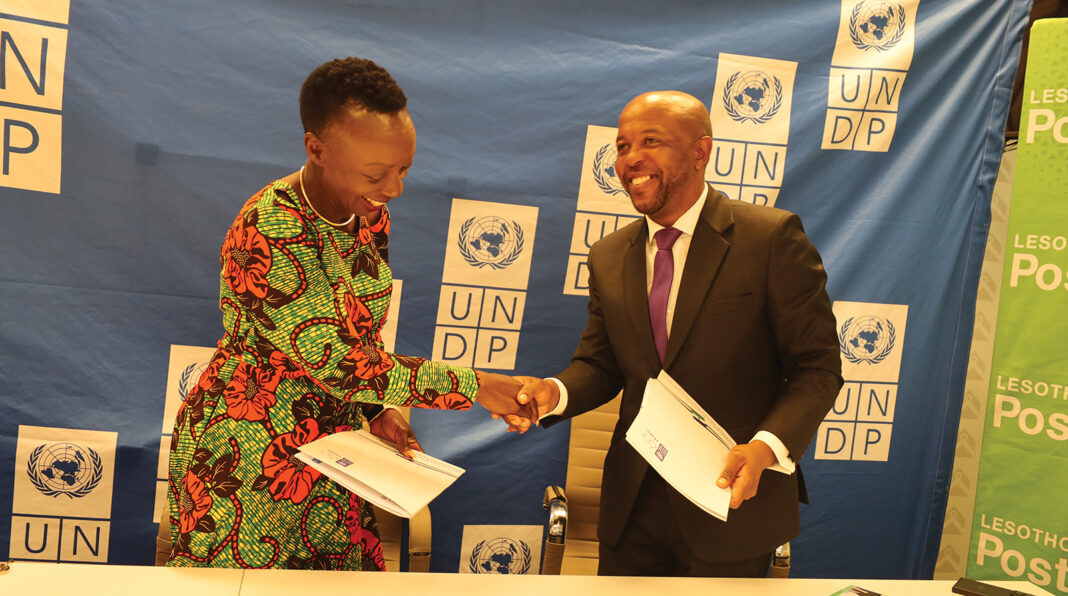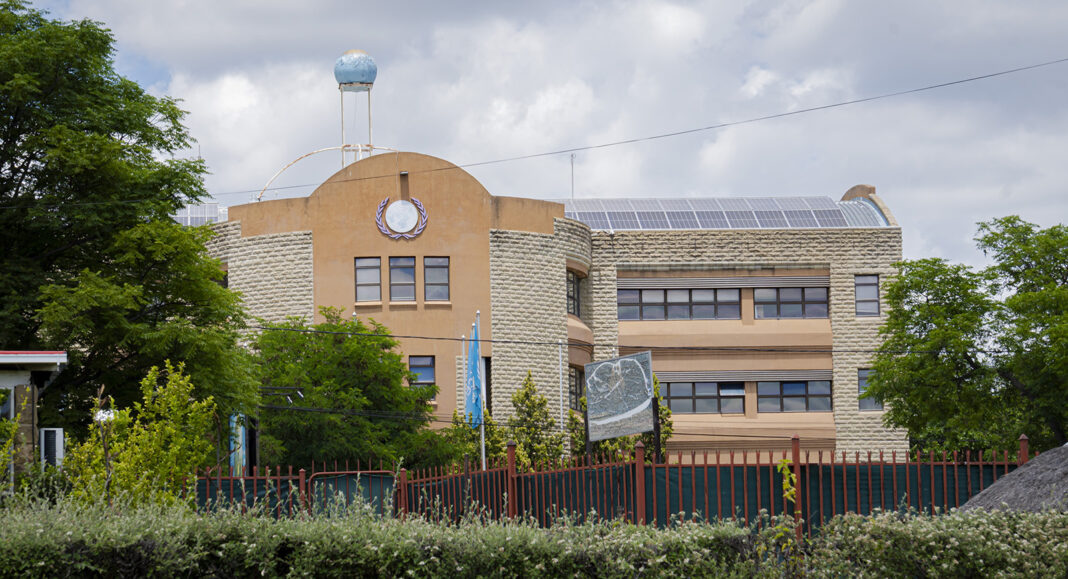The United Nations Development Programme (UNDP) and Lesotho Post Bank (LPB) have joined forces to empower women and youth-led Micro, Small and Medium Enterprises (MSMEs).
This partnership was marked by the signing of a Memorandum of Understanding (MOU) between the two organisations on Tuesday this week.
Through this collaboration, UNDP and LPB will work together to enhance access to financial resources for youth and women.
They will provide capacity development training, including financial literacy programmes, to help young people and women grow their businesses and become employers.
The partnership will also promote opportunities for innovative-driven entrepreneurship, enabling young people to introduce new ideas and products in their businesses.
Speaking at the signing ceremony, UNDP Lesotho Resident Representative Dr. Jacqueline Olweya, highlighted the pressing issues of youth unemployment and women empowerment in Lesotho.
She noted that while there are many women-led micro, small, and medium enterprises, they often struggle to access finance and expand their businesses.
Dr. Olweya indicated that one of the main reasons for this challenge is the lack of access to financial resources.
The Lesotho Post Bank’s mandate to provide access to funds makes them an ideal partner in addressing this issue. The partnership aims to bridge the gap between financiers and those in need of resources, she noted.
She further indicated that with UNDP’s global experience and LPB’s local expertise, the partnership is well-positioned to make a positive impact.
The partnership will also focus on building the capacity of entrepreneurs and innovators, providing them with the skills and knowledge needed to develop bankable projects and access funding.
By promoting learning and sharing of good practices, the collaboration aims to create a sustainable and inclusive economic growth in the country.
Furthermore, the partnership will expand access to markets and build the capacity of youth and women-led MSMEs to participate in domestic, regional, and global trade.
Dr Olweya said this will be achieved through the Africa Continental Free Trade Area (AfCFTA), which offers opportunities for businesses to access new markets and grow their revenue.
Overall, the partnership between UNDP and LPB is a significant step towards empowering youth and women in Lesotho. The two organizations can leverage their strengths and expertise to create opportunities for economic growth and development.
The Managing Director of Lesotho Post Bank, Mokhachane Mopeli, noted that LPB is one of the youngest banks in the country, founded 20 years ago.
Mopeli stated that the bank was formed to cater to the interests of Basotho who were previously sidelined by other established corporates due to their limited developmental mandate.
He added that the bank’s purpose is to address the needs of ordinary Basotho who were excluded by other institutions.
Mopeli highlighted that the challenge of youth unemployment goes beyond just joblessness, but also includes limited participation in the economy.
“The youth want to partake in the economy not just as employees but as employers,” he said.
He indicated that the partnership with UNDP will not only create jobs but also capacitate the youth to take part in the growth of the economy.
Mopeli noted that lack of access to finance has shattered the dreams of many Basotho, and therefore, LPB aims to provide technical guidance, finance, and support to help them achieve their goals.
He encouraged the youth, who form a significant part of families, to seize the opportunity and seek financial assistance from LPB and unlock their potential and contribute to the country’s economic growth and development.
The Principal Secretary in the Ministry of Gender, Youth and Social Development, Mahlapane Makakole, welcomed the partnership calling it a “marriage” that would produce “seeds” for the country.
She said this opportunity presents a great opportunity for youth and women, the most vulnerable groups to access finance and start businesses to sustain their livelihoods and contribute to the country’s economy.
Makakole highlighted the importance of the private sector’s role in job creation, noting that the current state affairs where the government is often considered the major employer needs to change.








